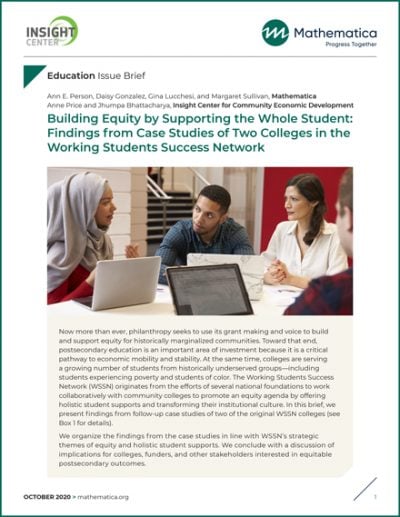Underappreciated Programs
Culturally responsive programs play an important role in addressing students’ academic and non-academic needs. For example: They foster a sense of belonging on campus, which is a key factor in student success.

This report focuses on case studies of two community colleges and their efforts to build and support equity for students from historically underserved groups. Both institutions were part of the Working Students Success Network (WSSN), an effort spanning 19 colleges in four states that aimed to help low-income working students succeed.
Broadly speaking, the WSSN strategy emphasizes institutional culture change as well as integrated and holistic services and supports across three pillars: 1) employment and career advancement; 2) income and work supports; and 3) financial services and asset building.
Site visits and interviews with students and employees informed the case studies and indicate that both schools faced challenges in developing a common, informed understanding of equity. This research also revealed several important considerations for colleges, funders, and other stakeholders who may be interested in using holistic supports to promote equity in postsecondary education.
To advance an equity agenda, postsecondary stakeholders — including colleges, funders and other partners — must develop a shared, overarching equity framework that acknowledges how different student populations need different supports to achieve the same level of success. Institutional strategies that align with this framework should take a whole-learner approach and integrate student voices, caring individuals and culturally responsive programs.